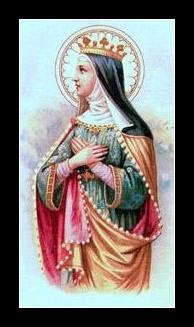St. Ursula

In the ninth century was discovered in Cologne, Germany, in a sixth-century church, a coiled section that begins: "Martyrdom of Ursula and 11,000 virgins." It is a document that includes the martyrdom of these virgins into the site on which he built a beautiful church. In "Passion" theatrical invented to tell his story, you can see that they came from England with Ursula, daughter of the king, escape the pagan Saxons were invading the country. When his ship arrived at Cologne, Attila the terrible was about time there with the Hun. Attila, hard, strong, very passionate temper and wanted to marry the beautiful girl Ursula. The others were turned over to his soldiers that violate or do whatever they wanted with them. But the bully did not expect the response of these girls. When approached them and made their proposals, they replied in unison with the most emphatic denial that you can imagine. Enraged Attila ordered the killing of the hardest way possible. Throughout t...


